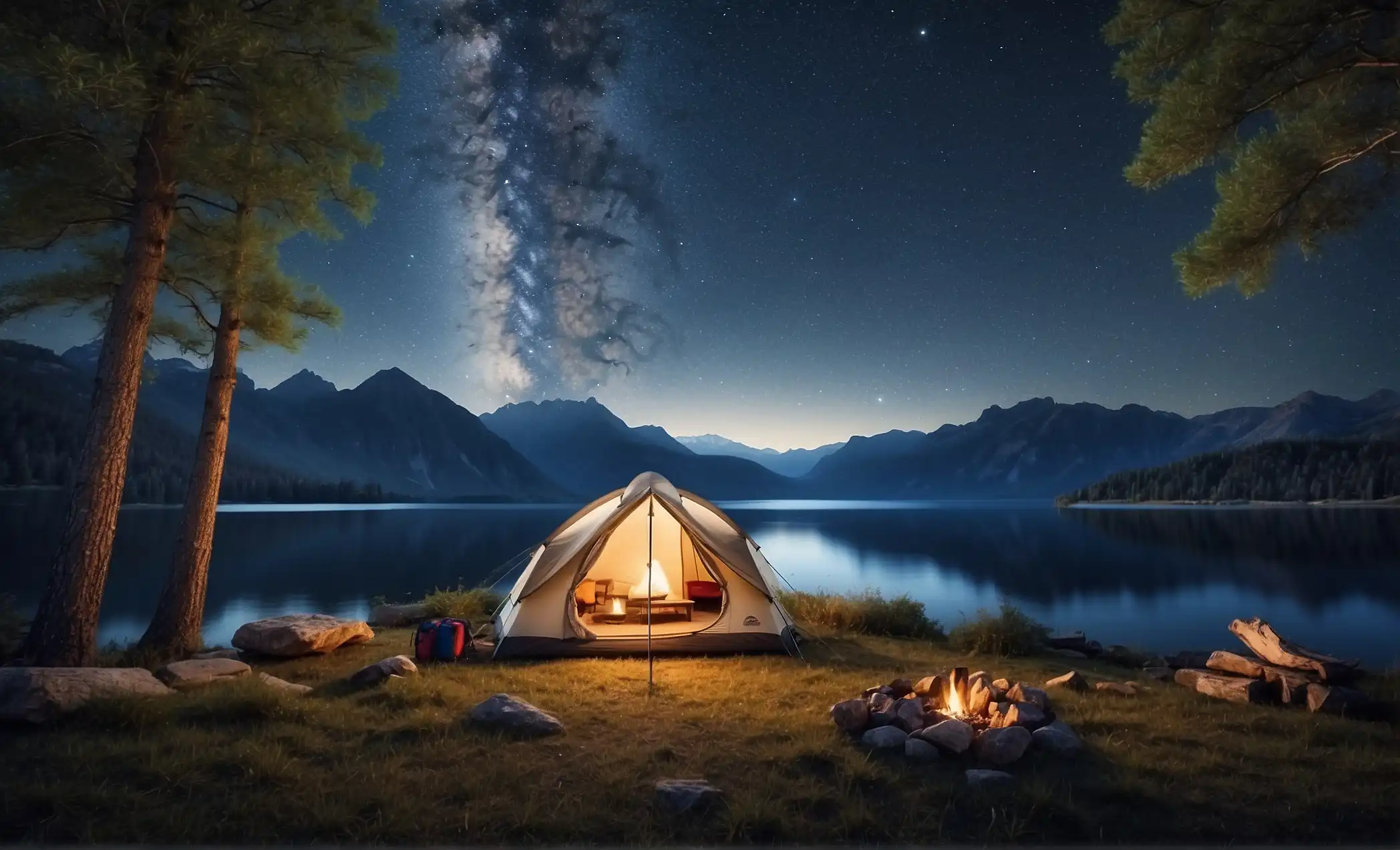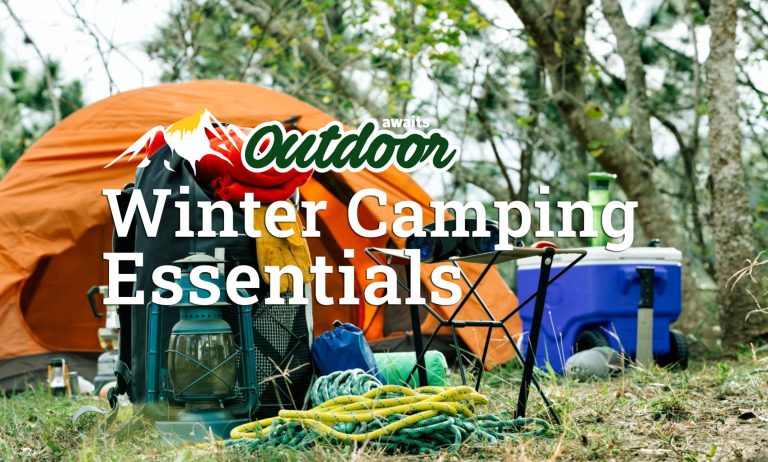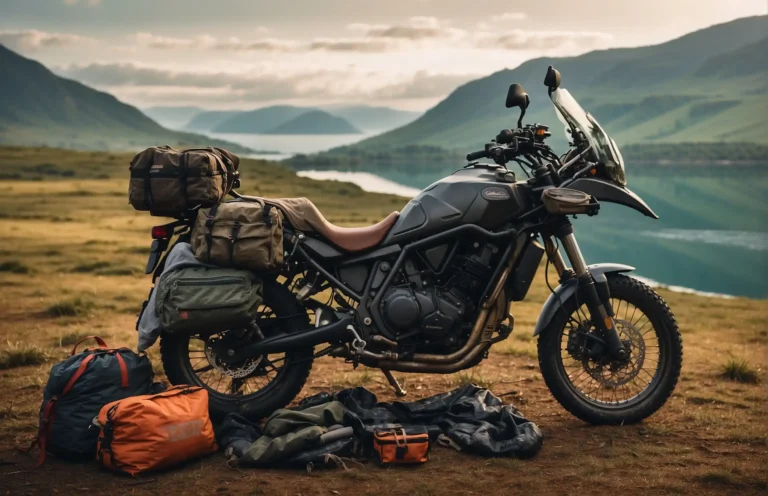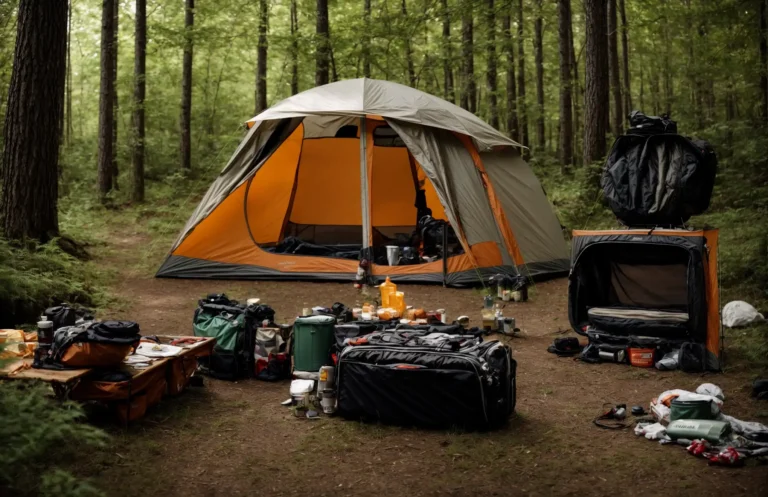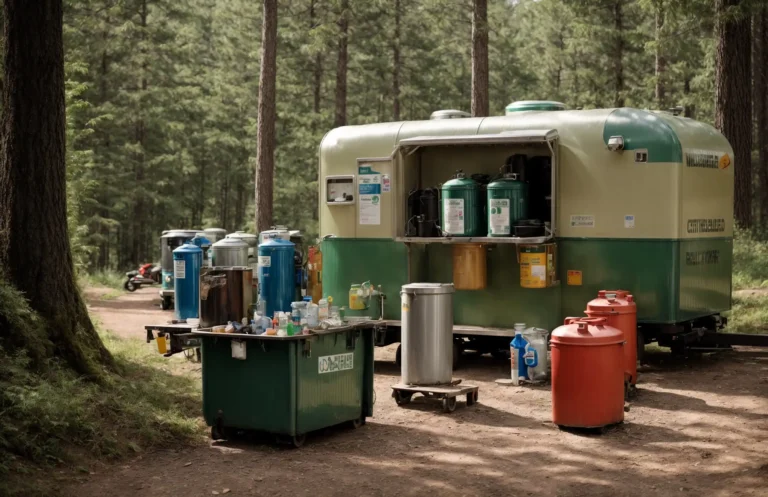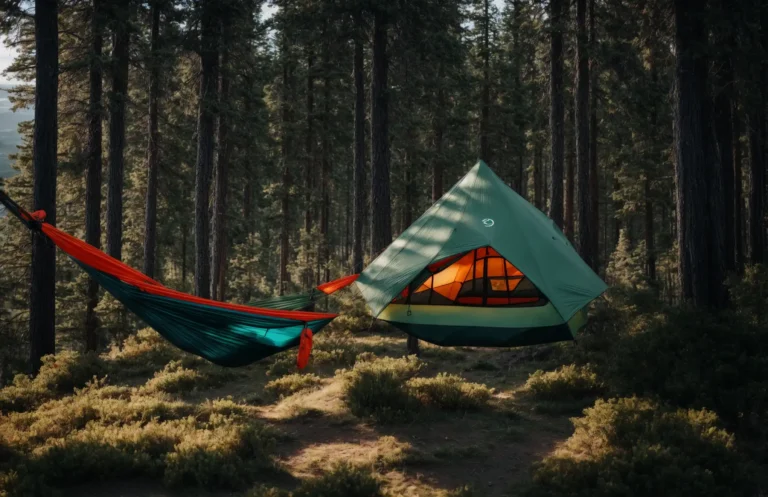How Safe is Camping in a Tent: Unveiling Risks & Tips
Camping in a tent is generally safe when common safety guidelines are followed. Proactive measures greatly reduce risks.
Engaging with the great outdoors through tent camping is an adventure that many nature enthusiasts revel in. Ensuring safety involves a blend of preparation, awareness, and respect for wildlife and the environment. Campers should select a safe campsite, ideally one that is flat, away from water bodies, and free from overhead dangers like dead branches.
Understanding the local wildlife and storing food properly can prevent unwanted animal encounters. Equipping oneself with the right gear, such as a weather-resistant tent and a reliable communication device, is essential. Moreover, staying informed about weather conditions and having a first-aid kit at hand can help campers manage unexpected situations. By doing so, the timeless experience of tent camping can be both thrilling and secure.
Introducing the Great Outdoors: Romancing the Wilderness
Tent camping offers an unforgettable experience. The sweet serenade of wildlife at dusk, the whisper of trees in the wind, and the canopy of stars overhead define the essence of romancing the wilderness. Embracing the raw beauty of nature finds a special expression in pitching a tent and settling into the tranquility of the great outdoors.
The Lure of Tent Camping
Why does tent camping hold such appeal to so many? The answer lies in its simplicity and the deep connection it fosters with nature. A tent serves as a personal haven, a mobile abode that brings adventurers up-close with the elements, offering a true sense of freedom.
- Minimalistic living strips away the clutter of modern life
- Direct engagement with nature revitalizes the soul
- Social bonding flourishes around the campfire
- Economic feasibility makes it accessible to many
Perceptions Vs Reality of Camping Safety
Concerns about camping safety often deter potential campers. The perception of tent camping as unsafe is at odds with reality. Statistically, camping is quite safe, especially when campers are well-prepared and follow basic safety guidelines.
| Common Fears | Reality Checks | Safety Tips |
|---|---|---|
| Wildlife encounters | Uncommon and usually non-aggressive | Store food securely, keep distance |
| Getting lost | Preventable with proper preparation | Use maps, GPS and stay on trails |
| Weather hazards | Weather forecasts are reliable | Check weather, pack appropriately |
| Health emergencies | Preparation reduces risk significantly | First-aid kits, knowledge of basic first-aid |
Understanding and mitigating the risks, while respecting the environment, not only ensures a safe camping experience but also an enriching one. Tent camping is not about tempting fate; it’s about the calculated immersion into the outdoors with an informed and respectful mindset. When considering a family vacation in the great outdoors, one important question to address is “how safe is camping in a tent?” especially in areas with diverse wildlife.
Understanding Potential Dangers
Camping in a tent brings us closer to nature but often brings with it a host of overlooked risks. Venturing into the great outdoors armed with knowledge and preparation can turn potential dangers into mere trivialities. Let’s delve into the various elements that every camper should be aware of before pitching a tent under the stars.
Weather-related Hazards
Weather can be a fickle friend to campers, ranging from blissful sunshine to perilous conditions without much warning. Understanding the weather patterns of your camping destination is critical. Here’s what to watch out for:
- Thunderstorms: Lightning, high winds, and heavy rain can endanger campers. Seek shelter immediately.
- Extreme Temperatures: Both heatwaves and cold snaps require proper gear and knowledge to prevent heatstroke or hypothermia.
- Flash Floods: Camp away from riverbeds and low-lying areas that can become instant torrents.
Always consult the local weather forecasts and bring appropriate gear for the season and terrain.
Wildlife Encounters and Their Risks
Spotting wildlife is thrilling, yet respecting their habitat is paramount for your safety. Minimize encounters and risks:
- Store food in bear-proof containers away from your sleeping area.
- Understand the behavior of local fauna to recognize warning signs.
- Keep a clean campsite to prevent unwanted visitors.
Research the wildlife in the area and learn what to do in the unlikely event of an aggressive animal encounter.
Health and Hygiene: Managing Sickness and Infections
Maintaining health and hygiene is essential for a safe camping experience. Mitigate health risks by:
| Prevention | Action |
|---|---|
| Waterborne Illnesses | Boil water or use filters/treatment tablets. |
| Insect Bites | Apply repellent and wear protective clothing. |
| Skin Infections | Maintain personal hygiene and first-aid for wounds. |
Prioritize good sanitation practices and be ready to respond to health issues effectively.
Navigating the Threat of Human-Related Dangers
Although most campers are respectful, it’s best to stay vigilant against human-related threats. Keep safe by:
- Securing Valuables: Lock them up or keep them on your person.
- Choosing Campsites Wisely: Opt for locations that are well-trafficked yet offer privacy.
- Staying Informed: Know the emergency procedures and nearest ranger stations.
Safeguarding the Camping Experience: Practical Safety Tips
Camping in a tent can be an exhilarating adventure, but a successful camping trip depends significantly on being prepared and prioritizing safety. Whether embarking on a solo journey or enjoying the great outdoors with family and friends, following practical safety tips can mean the difference between a memorable experience and a perilous ordeal. Ensure your camping experience is as safe as it is enjoyable with these indispensable strategies.
Choosing the Right Tent and Camping Equipment
Selecting quality camping gear is crucial to safeguarding your outdoor experience. Begin with a weather-appropriate tent, ensuring it’s built to withstand the elements you’ll encounter. Look for features like:
- Water-resistance — to stay dry during rain,
- Sturdy poles and anchors — for wind resistance,
- Ventilation — to manage condensation and provide airflow.
Complement your tent with a comfortable, insulated sleeping bag and sleeping pad for a good night’s rest. Also, pack reliable lighting equipment, such as headlamps and lanterns, and backup power sources to maintain visibility at all times.
Implementing Safe Food Practices
To avoid attracting wildlife and prevent foodborne illnesses, implement safe food handling practices:
- Store food in airtight containers or bear-proof canisters,
- Keep your cooking area clean and free of residues,
- Dispose of waste in designated areas or carry it out with you,
- Never store food inside your tent,
- And use a camp stove or fire pit—maintained at a safe distance from your tent—for cooking.
Mastering Spatial Awareness and Campsite Safety
Familiarize yourself with the campsite layout and natural hazards. Ensure your tent is positioned on stable, flat ground away from potential dangers like:
- Falling branches,
- Rising waters, and
- Wildlife paths.
Keep a safe distance from others when setting up camp to avoid tripping over lines or infringing on their space. Always be aware of the location of campsite amenities, including water sources, toilets, and emergency exits.
Emergency Preparedness: First Aid and Rescue Plans
Being equipped for emergencies can be a lifesaver in the outdoors. Always carry a comprehensive first aid kit and know how to use each component. Educate yourself about the symptoms and treatment of common camping ailments like:
- Hypothermia,
- Dehydration, and
- Insect bites.
Establish a rescue plan before embarking on your trip. Know the closest point of contact for emergency services and have a communication plan in place, especially in areas with poor or no cell service. Consider carrying a whistle, mirror, or even a personal locator beacon (PLB) as part of your safety gear.
Learn more: How to Get Bugs Out of Your Tent
Technical Tools and Accessories: Enhancing Security on Campgrounds
Camping in a tent brings you closer to the serene beauty of nature, yet it demands a keen emphasis on safety. In today’s technologically advanced era, various technical tools and accessories can significantly enhance your security on campgrounds. From GPS units to personal safety alarms, these items offer peace of mind, allowing campers to enjoy the great outdoors with an added layer of protection.
Leveraging Gps and Communication Devices
Staying connected and oriented can make all the difference in the event of an emergency. GPS devices provide real-time location tracking, helping you to navigate unfamiliar terrain and ensuring that you can always find your way back to camp or to safety.
- Handheld GPS units with pre-loaded maps that feature trails and landmarks.
- Smartphone GPS apps, offering offline maps in case of no cellular service.
- Satellite messengers allowing for communication where traditional signals fail.
Integrating such technology ensures you’re never truly lost and keeps rescue teams within reach should the need arise.
Use of Wildlife Deterrents and Personal Safety Alarms
When camping in areas with potential wildlife encounters, it’s vital to prioritize preventative measures.
| Wildlife Deterrent | Description |
|---|---|
| Bear Spray | A non-lethal repellent to deter aggressive bears when encountered. |
| Elec tronic Repellents | Devices that emit ultrasonic waves to keep wildlife at bay. |
Personal safety alarms can also be a lightweight but effective emergency tool, emitting a loud siren to alert others and scare off potential threats.
The Benefits of Group Camping for Increased Safety
Camping in a group inherently increases security. The presence of multiple people can deter wildlife and provides a collective resource of knowledge and skills for handling unexpected challenges.
- Increased visibility and noise as a deterrent for wildlife.
- Shared responsibility for keeping watch and maintaining a safe environment.
- Mutual aid in case of health emergencies or injuries.
Group camping not only offers social enjoyment but also adds a layer of security that can be essential for a truly relaxing and worry-free outdoor experience.
To know more: What Size Carbon Filter for 4×4 Tent
Conclusion
Embracing the wilderness through tent camping can be a thrilling experience. With the right preparation and know-how, it remains a relatively safe adventure. Respect nature, stay informed, and prioritize your safety to relish the great outdoors. Let your spirit of adventure thrive, secure in the knowledge that tent camping can be a safe, memorable journey. Stay connected with Outdoor Awaits for latest contents on the learning point.

